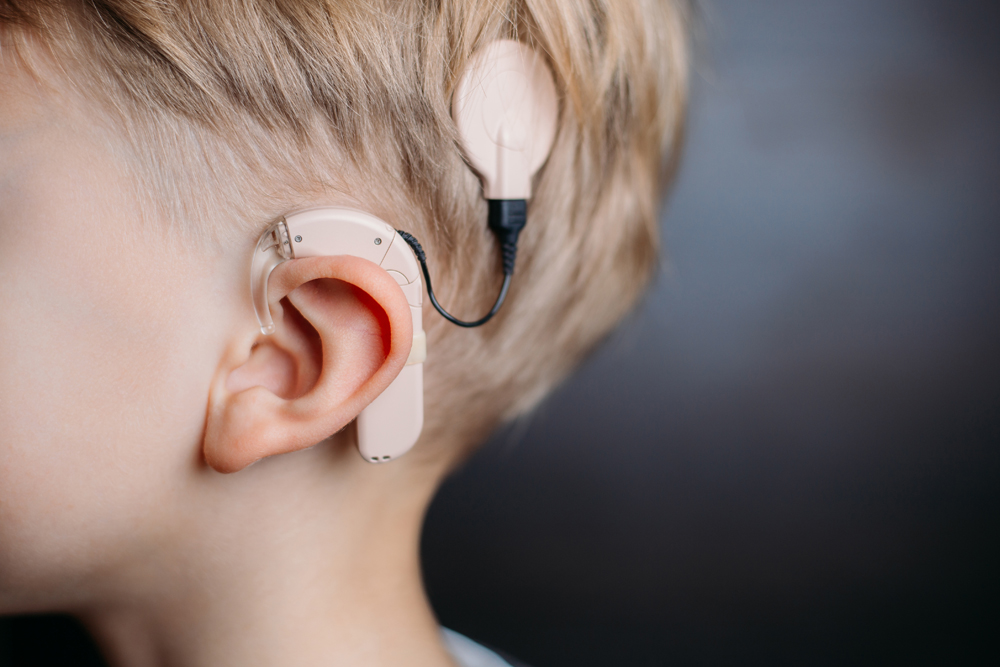Hearing is an essential sense that connects us to the world around us, allowing us to communicate, enjoy music, and engage in daily life. However, millions of people worldwide suffer from severe to profound hearing loss, making these experiences difficult or even impossible. Fortunately, advancements in medical technology have led to the development of cochlear implants—revolutionary devices that can help restore hearing for those who no longer benefit from traditional hearing aids.
In this comprehensive guide, we will explore how cochlear implants work, who can benefit from them, their life-changing impact, and what potential candidates need to know.

What Are Cochlear Implants?
Cochlear implants are highly advanced electronic devices designed to provide a sense of sound to individuals with severe to profound sensorineural hearing loss. Unlike hearing aids, which merely amplify sounds, cochlear implants bypass damaged parts of the inner ear and directly stimulate the auditory nerve, allowing the brain to perceive sound.
How Do Cochlear Implants Work?
Cochlear implants consist of two primary components:
- External Component – Worn behind the ear or attached to the body, this part includes a microphone to capture sound, a speech processor to convert sound into digital signals, and a transmitter coil that sends signals to the internal component.
- Internal Component – Surgically implanted under the skin, this part receives the digital signals and sends electrical impulses to electrodes placed in the cochlea. These impulses stimulate the auditory nerve, allowing the brain to interpret them as sound.
By bypassing damaged hair cells in the cochlea, cochlear implants enable individuals to regain access to sound, significantly improving their ability to communicate and engage with the world.
Who Is a Candidate for Cochlear Implants?
Cochlear implants are typically recommended for individuals who meet the following criteria:
- Have severe to profound hearing loss in one or both ears.
- Struggle to understand speech even with high-powered hearing aids.
- Have a functional auditory nerve and are medically fit for surgery.
- Experience difficulty in daily communication and social interactions due to hearing impairment.
Children and Cochlear Implants
Children as young as 12 months old can receive cochlear implants. Early implantation is crucial for language and speech development, as it enables children to acquire these skills during critical developmental periods.
Adults and Cochlear Implants
Adults who have lost their hearing over time can also benefit significantly from cochlear implants. By restoring access to sound, these devices help adults regain independence, enhance social interactions, and improve their quality of life.
Benefits of Cochlear Implants
Cochlear implants can have a profound impact on recipients, offering numerous benefits, including:
- Improved Speech Understanding – Many users experience a dramatic improvement in their ability to recognize speech, even in noisy environments.
- Enhanced Communication – Cochlear implants help individuals engage in conversations more effectively, reducing feelings of isolation.
- Greater Independence – With improved hearing, individuals can confidently navigate their surroundings, use telephones, and participate in everyday activities.
- Better Quality of Life – Regaining the ability to hear allows individuals to enjoy music, television, and social interactions, leading to a more fulfilling life.
What to Expect After Cochlear Implant Surgery?
Surgical Procedure
Cochlear implant surgery is a relatively safe and routine procedure performed under general anesthesia. It usually takes about 2-3 hours, and most patients can return home the same day or after an overnight stay.
Recovery and Activation
After surgery, there is a healing period of about 2-4 weeks before the implant is activated. During activation, an audiologist programs the external processor and fine-tunes it for the best hearing experience.
Rehabilitation and Adaptation
Adjusting to cochlear implants takes time. Recipients undergo speech therapy and auditory training to help their brain interpret the new signals. While results vary, most users experience significant improvements over time.
Possible Risks and Considerations
While cochlear implants are highly effective, there are some risks and considerations to be aware of:
- Surgical Risks – Like any surgery, there is a small risk of infection, swelling, or complications.
- Adjustment Period – Adapting to cochlear implants takes time, as the brain learns to process new auditory information.
- Device Limitations – Cochlear implants do not restore natural hearing but provide an enhanced perception of sound.
FAQs:
1. Can cochlear implants completely restore normal hearing?
No, cochlear implants do not restore natural hearing. Instead, they provide a representation of sound that helps individuals understand speech and environmental noises.
2. How long does it take to adjust to a cochlear implant?
The adjustment period varies, but most users notice significant improvements within a few months, with continued progress over time through auditory training.
3. Are cochlear implants covered by insurance?
Many insurance plans, including Medicare and Medicaid, cover cochlear implants for eligible candidates. Coverage details vary, so it’s best to check with your provider.
4. Can both ears receive cochlear implants?
Yes, bilateral cochlear implantation is an option for individuals with severe hearing loss in both ears and can improve sound localization and speech understanding in noisy environments.
5. Do cochlear implants work for everyone with hearing loss?
Cochlear implants are most effective for individuals with severe to profound sensorineural hearing loss. Those with mild to moderate hearing loss may benefit more from traditional hearing aids.




